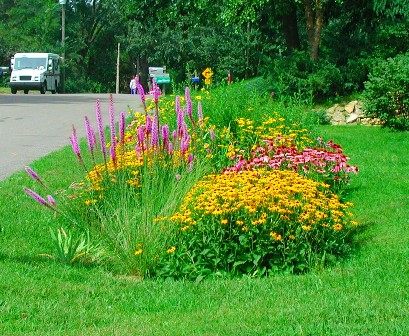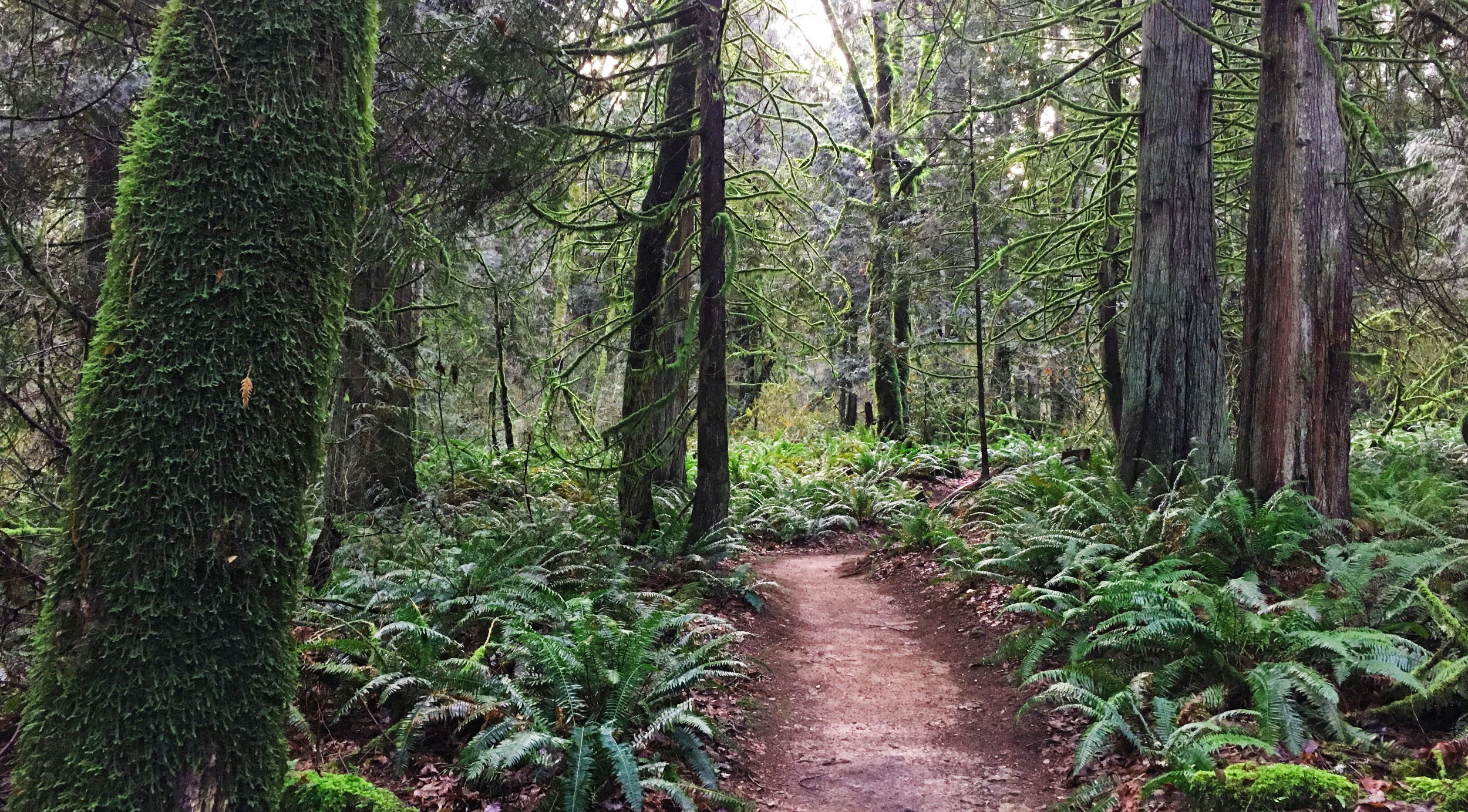
Yard and Garden Care
Practice natural yard care to save time, water, and money. Reducing hazardous waste also keeps Sammamish's waters cleaner and safer. Natural yard care helps preserve the environment.
Here are some changes you can make in how you care for your yard that is healthier for our environment:
Use only the water you need
Sweep walkways and compost debris
- Don't hose down walkways to clean them.
- Instead, rake or sweep up grass clippings, leaves, and twigs. Put them into a yard waste container or compost pile.
- Sweep up dirt and put it back into the garden. This way, you won't accidentally wash debris into a storm drain or waterway. You'll also save water.
Maintain irrigation systems
- Make sure your irrigation system is in good working order.
- Limit use to actual watering needs.
Collect rainwater
- Collect stormwater runoff from your roof in closed rain barrels.
- Use collected rainwater for yard and garden watering.
Plant smart
Keep a buffer of native plants along stream, lake or wetlands. This will help prevent erosion and stop heavy rain sheet flow. Plants also provide treatment of pollutants in stormwater runoff.
Reduce pesticide use
Choose pest-resistant plants
Choose native plants and trees or others that resist pests and disease. Nurseries can help you make choices.
- Certain flowering cherry trees are resistant to brown rot.
- Some roses are resistant to aphids and mildew.
- Certain rhododendrons are resistant to root weevils and are drought tolerant.
Avoid weed and feed
Avoid using weed and feed products. Applying this to your entire lawn is overkill for weed control.
- Pull weeds by hand or with tools.
- If you decide to use a weed killer, wear gloves and spot spray just the weed. Do not spray when it is windy or rain is predicted.
- Never use pesticides, fertilizers, or herbicides near streams, lakes, or wetlands.
Don't use Diazinon
Avoid using Diazinon, which is often used to treat crane flies in lawns. This pesticide has also been found in our streams. The Environmental Protection Agency is phasing it out because of the potential health risk to children.
